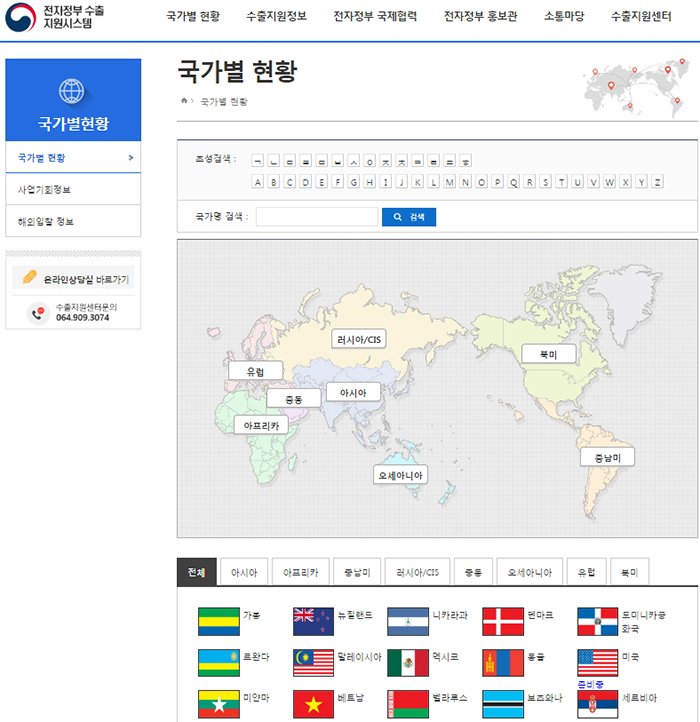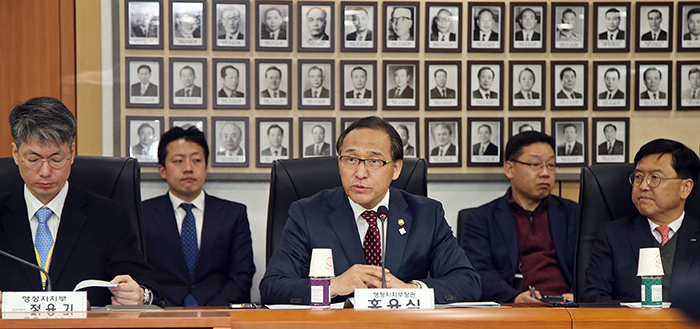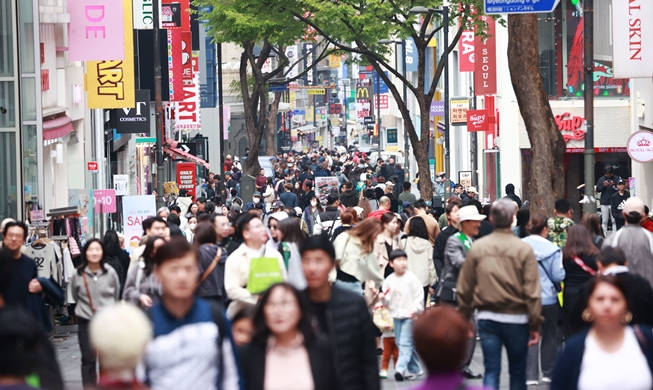-
 Korea.net's 24-hour YouTube channel
Korea.net's 24-hour YouTube channel- NEWS FOCUS
- ABOUT KOREA
- EVENTS
- RESOURCES
- GOVERNMENT
- ABOUT US
View this article in another language
- 한국어
- English
- 日本語
- 中文
- العربية
- Español
- Français
- Deutsch
- Pусский
- Tiếng Việt
- Indonesian
The government has opened an online portal that shows all the information about its online government services, or e-government, and related bidding information.
The Ministry of the Interior opened the website, its “E-government export support system” (www.egovexport.go.kr), on Mar. 8 in order to meet the demands of e-government exports and the needs and trends of industry. The newly opened website, currently operating on a test-run basis, will be open to e-government exporters.

In the past, firms or government bodies had to consult with individual organizations, such as the Ministry of Foreign Affairs, KOTRA and KOICA, in order to know more about business information. Some may have experienced difficulties in local conditions, or in gaining business information or bidding information.
The new website, however, does not only provide information. As an online platform, it enables its users, including government bodies and public organizations, local entities and Korean firms, to share, provide and use the information.
In the “Current Statues by Countries” menu, users can get more information about overseas countries and regions. They can also learn more about related data about the selected country of their choice, which includes present conditions, related news, bidding information and business opportunities, all at one place. The website also offers information in its menu dubbed “Excellent E-government Systems,” which enables users to promote Korea’s well-recognized e-government systems overseas.

Meanwhile, the ministry held its first “E-government Promotion Committee” at the Government-Complex-Seoul to map out the future direction of Korea’s online government services. In the meeting, the ministry announced it would build an “intelligent government” and a “smart nation,” both future goals of its e-government development.
An "intelligent government" means a government backed by artificial intelligence (AI) and data, which can provide a detailed service, both on- and offline, like a personal assistant or "secretary for the people and for public officers."
With this in mind, the ministry selected four goals: build a government that looks after people’s hearts, solve issues in advance, share values and protect people and enhance safety. It has also listed 14 tasks to achieve these goals.
Another future plan concerning e-government is to build a “smart nation.” Under this plan, the ministry aims to build AI-based infrastructure and to provide online government services to local residents across the country so that everyone can have access to them.
The plans include four strategies: provide AI-based services in urban and suburban areas, form a nation-wide network based on the Internet of Things (IoT), spread local-based services in the public and private sector, and set up a system of “local-based governance.”
The ministry aims to provide 11 detailed e-government services in this category, including setting up sensors for the movement and gas leaks at homes of the elderly who live by themselves. This system would automatically send information to the National 119 Rescue Control Office. Such services would also include providing life support for those in need. Other services include providing AI-based high-tech services, such as in the medical and educational sectors, in regions where the population is on the decline, in order to help balanced development across the nation.
By Yoon Sojung
Korea.net Staff Writer
Photos: Ministry of the Interior
arete@korea.kr
The Ministry of the Interior opened the website, its “E-government export support system” (www.egovexport.go.kr), on Mar. 8 in order to meet the demands of e-government exports and the needs and trends of industry. The newly opened website, currently operating on a test-run basis, will be open to e-government exporters.

The government opened a new website for e-government exports, dubbed the ‘E-government export support system,’ on March 8. Visitors to the website can get all the related information about e-government exports, including Korea’s exports by destination country.
In the past, firms or government bodies had to consult with individual organizations, such as the Ministry of Foreign Affairs, KOTRA and KOICA, in order to know more about business information. Some may have experienced difficulties in local conditions, or in gaining business information or bidding information.
The new website, however, does not only provide information. As an online platform, it enables its users, including government bodies and public organizations, local entities and Korean firms, to share, provide and use the information.
In the “Current Statues by Countries” menu, users can get more information about overseas countries and regions. They can also learn more about related data about the selected country of their choice, which includes present conditions, related news, bidding information and business opportunities, all at one place. The website also offers information in its menu dubbed “Excellent E-government Systems,” which enables users to promote Korea’s well-recognized e-government systems overseas.

Minister of the Interior Hong Yun-sik (center) presides over the first E-government Promotion Committee, at the Government-Complex-Seoul on Mar. 7.
Meanwhile, the ministry held its first “E-government Promotion Committee” at the Government-Complex-Seoul to map out the future direction of Korea’s online government services. In the meeting, the ministry announced it would build an “intelligent government” and a “smart nation,” both future goals of its e-government development.
An "intelligent government" means a government backed by artificial intelligence (AI) and data, which can provide a detailed service, both on- and offline, like a personal assistant or "secretary for the people and for public officers."
With this in mind, the ministry selected four goals: build a government that looks after people’s hearts, solve issues in advance, share values and protect people and enhance safety. It has also listed 14 tasks to achieve these goals.
Another future plan concerning e-government is to build a “smart nation.” Under this plan, the ministry aims to build AI-based infrastructure and to provide online government services to local residents across the country so that everyone can have access to them.
The plans include four strategies: provide AI-based services in urban and suburban areas, form a nation-wide network based on the Internet of Things (IoT), spread local-based services in the public and private sector, and set up a system of “local-based governance.”
The ministry aims to provide 11 detailed e-government services in this category, including setting up sensors for the movement and gas leaks at homes of the elderly who live by themselves. This system would automatically send information to the National 119 Rescue Control Office. Such services would also include providing life support for those in need. Other services include providing AI-based high-tech services, such as in the medical and educational sectors, in regions where the population is on the decline, in order to help balanced development across the nation.
By Yoon Sojung
Korea.net Staff Writer
Photos: Ministry of the Interior
arete@korea.kr
Most popular
- First hearing-impaired K-pop act hopes for 'barrier-free world'
- Expats could account for 7% of population in 20 years: report
- 'Mad Max' director impressed by 'cinema-literate' Korean viewers
- Show in Italy to present 'thought-filled' Korean craftworks
- Romanian presidential couple visits national cemetery













